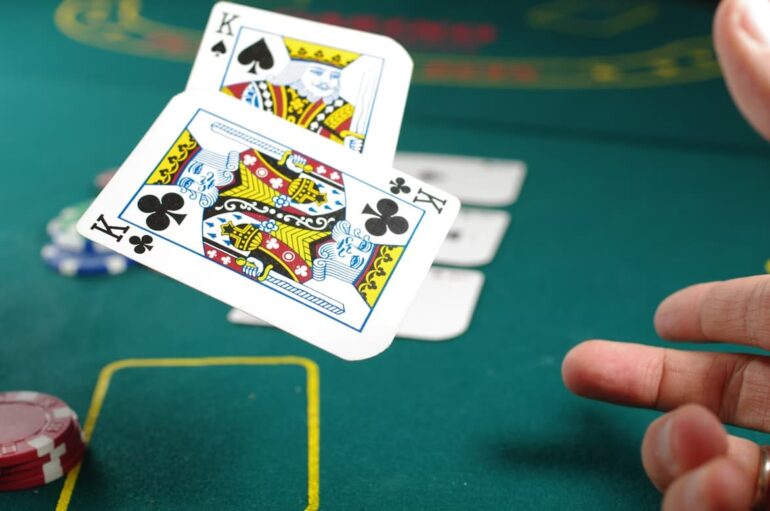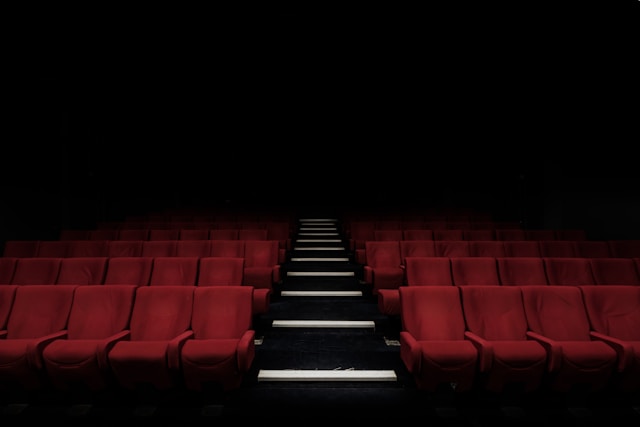The clatter of a tumbling roulette ball, the tense silence before a final card is turned, the casual flip of a coin that holds a life in the balance—these are some of the most electrifying moments in cinema. On the surface, gambling is about risk and reward, a simple contest for money. But filmmakers have long understood its deeper power. In film, a high-stakes game is rarely just about the pot. It’s a crucible, a condensed and potent metaphor for life’s most profound questions: Are we in control of our lives? Is our path guided by skill and choice, or are we merely subject to the whims of luck and an unchangeable destiny? By placing characters at the mercy of chance, cinema explores the very essence of the human condition.
The Casino as a Modern Stage for Fate

In storytelling, setting is never accidental, and few locations are as symbolically charged as the casino. It’s a world unto itself, operating outside the normal rules of society. The glitz, glamour, and free-flowing liquor create an illusion of a fantastical playground, but beneath the surface lies a cold, mathematical reality where the “house” is an unfeeling, omnipotent entity. This makes the casino the perfect stage for a drama about fate. The house represents the universe or destiny itself—an unbeatable system with its own unchangeable laws. Characters who enter this space are essentially stepping into an arena to challenge the gods.
In films like Casino Royale, James Bond’s poker game against Le Chiffre isn’t just about bankrupting a terrorist; it’s a battle of wills where each player believes their skill can master the randomness of the cards. Yet, even Bond, a character defined by his supreme competence, is subject to the turn of the river. The game becomes a microcosm of his struggle: he can be the best agent in the world, but he can’t control every variable. The casino strips away his gadgets and physical prowess, leaving him with only his wits and a prayer to the gods of probability. It’s here that his character is truly tested, revealing a vulnerability that makes his eventual triumph (or failure) all the more meaningful.
The Bet as a Reflection of the Soul

Beyond the setting, the specific act of gambling becomes a powerful tool for character revelation. How a person plays a game tells us everything we need to know about who they are. The cinematic gambler isn’t just playing with chips; they’re betting with their identity, their future, and sometimes, their very soul. This high-stakes, dramatic representation of gaming is, of course, a world away from the average person’s experience. While filmmakers use these moments for existential exploration, the real-world landscape of gaming is more about calculated entertainment. Modern players are less likely to be facing down a villain over a game of Texas Hold’em and more likely to be seeking reliable, clear information on digital platforms. For instance, detailed resources like gamblechief.com cater to this audience, focusing on the rules, bonuses, and reviews of online games rather than a duel with destiny. This contrast highlights the magic of cinema: it elevates a pastime into a profound philosophical statement.
In movies, the stakes are what define the character. Consider these cinematic moments and what they reveal:
- The Calculated Risk: In Rounders, Mike McDermott’s methodical, disciplined approach to poker shows his belief in skill over luck. For him, it’s a long game, a profession, not a desperate gamble. His struggle is to maintain that discipline against the emotional pull of fate.
- The Desperate Gamble: For Axel Freed in The Gambler, the act of betting is a self-destructive compulsion. He bets not to win, but to feel the thrill of total risk, pushing himself to the absolute zero point to see if fate will catch him.
- The Unwitting Bet: In No Country for Old Men, characters who encounter Anton Chigurh aren’t even in a casino. They are forced into a coin toss where their life is the stake. They have no system and no choice; they are simply at the mercy of a cruel, indifferent universe, and Chigurh is its high priest.
Ultimately, gambling scenes in film resonate so deeply because they mirror our own internal struggles. We all weigh risks, make choices based on incomplete information, and wonder how much of our success or failure is our own doing. These cinematic moments are a powerful reminder that sometimes, the most important thing isn’t the hand you’re dealt, but how you play it in the face of uncertainty. The turn of a card becomes the turning point of a life, and in that shared moment of suspense, we see our own hopes and fears reflected on the screen.
